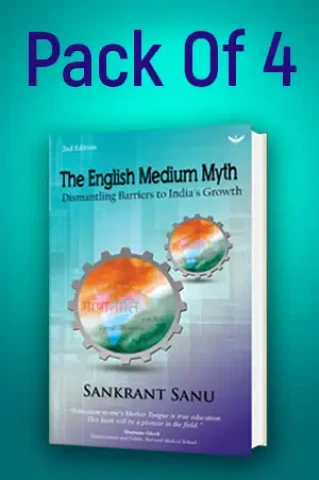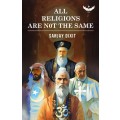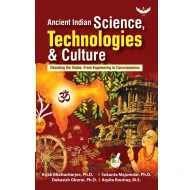
The English Medium Myth (Pack of 4)
Short Description
The English Medium Myth (Pack of 4)- Bulk Buy
More Information
| ISBN 13 | 978-1942426073 |
| Book Language | English |
| Binding | Paperback |
| Edition | 2nd |
| Release Year | 2018 |
| Publishers | Garuda Prakashan |
| Category | Social Impact Bulk Buy Bundles |
Frequently Bought Together

This Item: The English Medium Myth (Pack of 4)
$0.00
Sold by: Garuda International
ADD TO CART


This Item: The English Medium Myth (Pack of 4)
Sold By: Garuda Internation...
$0.00
Total Price : $0.00
Product Details
‘The English Medium Myth...’ takes a sweeping look at the entire problem of our seeming “indispensability of English” in our entire system – right from higher education, higher judiciary, bureaucracy, and media – which leads to creation of a class system based on how much one knows English and how “accented” it can be. Author Sankrant Sanu questions this mindset – and not only from the cultural point of view. The primacy of English is actually a barrier in India’s economic growth – he calls it “English apartheid” – argues Sanu. Tracing its origin from the British-era, the author sheds light on the mindset of the British colonizers. The reader would be left wondering as to why, even after seven decades of independence, this mindset has been allowed to continue; even flourish. So much so that bright talents end up committing suicides, because they are not able to cope with the “medium-change”, just when they are supposed to be taking wings in their professional lives in top institutions like AIIMS, IIT, etc.
But, instead of removing the primacy of English, the “solution being offered” is to “take English down to the primary level”. Sanu predicts that such being the approach, India would lose its own languages and time to salvage the situation is at a premium. The primacy of English in the higher echelons says Sanu in this book, only creates a “class-hierarchy”, which effectively blocks out 90% of India’s talent pool, which rests in the non-English speaking population. This book is anything but a hollow appeal to shun English. In fact, it is not anti-English, per se, but against the tendency to foist English over all other Indian languages -- to an extent that children are forced to learn a foreign language at an age when they should be learning various subjects in their mother tongue. An IIT-ian and a top former professional with Microsoft, who has traveled far-and-wide, Sanu pitches in with his own case studies, research and raw data from around the world and shares experiences of his colleagues and collaborators, to put forward a case for the kind of changes required to change the situation. He brings to the reader a range of case studies of countries across the globe – like Japan and other Asian tiger economies – on how they harnessed their mother tongue to achieve heights of economic prosperity in the past few decades. Like a true professional, Sanu also provides ‘total solution’ for his readers by enumerating the possible way-out of the situation -- at the policy level. Making higher education free from the barrier of English; using Sanskrit to create a technical glossary that can be acceptable to all Indian languages; treating English as the second or third preference language, and removing barriers to learning multiple Indian languages – are some of the suggestions made in this book. Going through the book, the reader will realize how state policy can be used to bring cultural and economic destitution to a colony country by the colonial power. And, that is why Sanu argues that it is important to undo the damage at the policy level – something, that has simply continued after independence without being questioned. The book is in its second edition, where Sanu calls for the “Samaj (Society at large)” to contribute towards this as the powers-that-be still seem to be dragging their feet on the policy-level changes.












